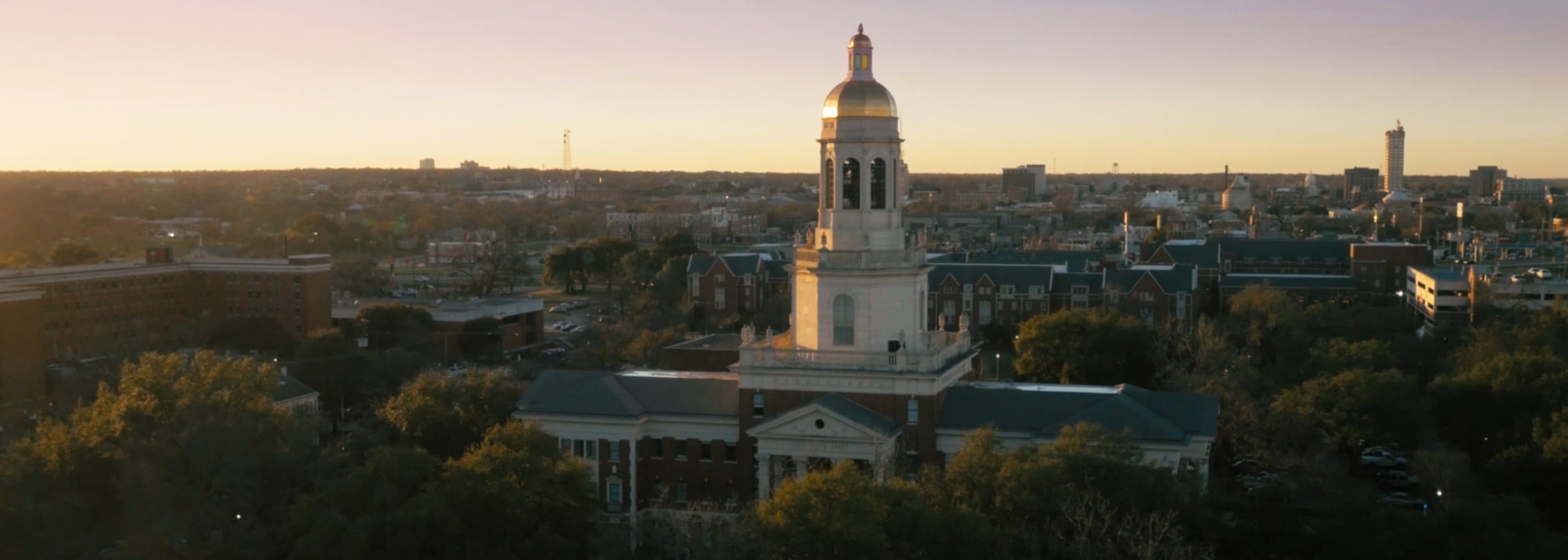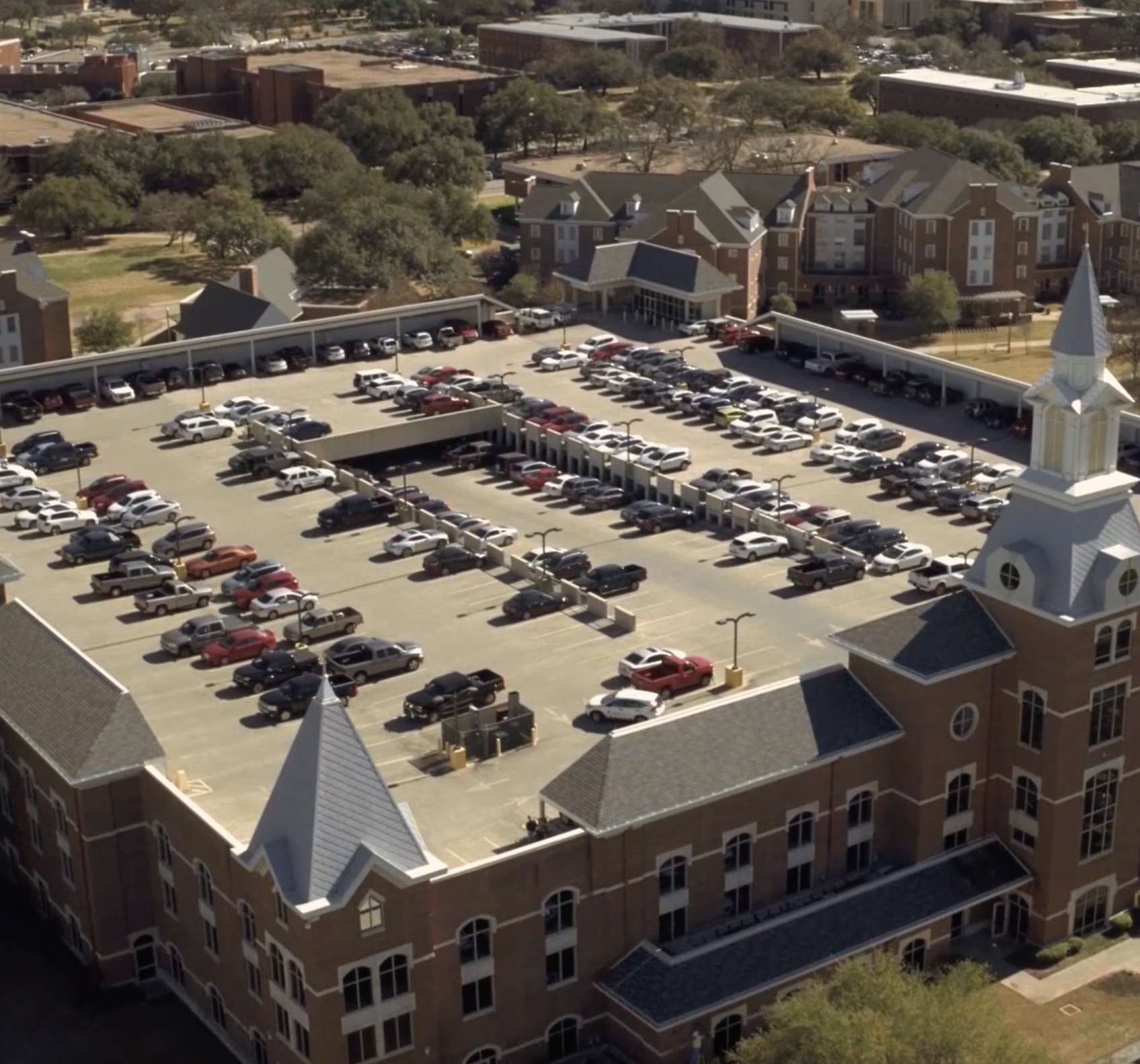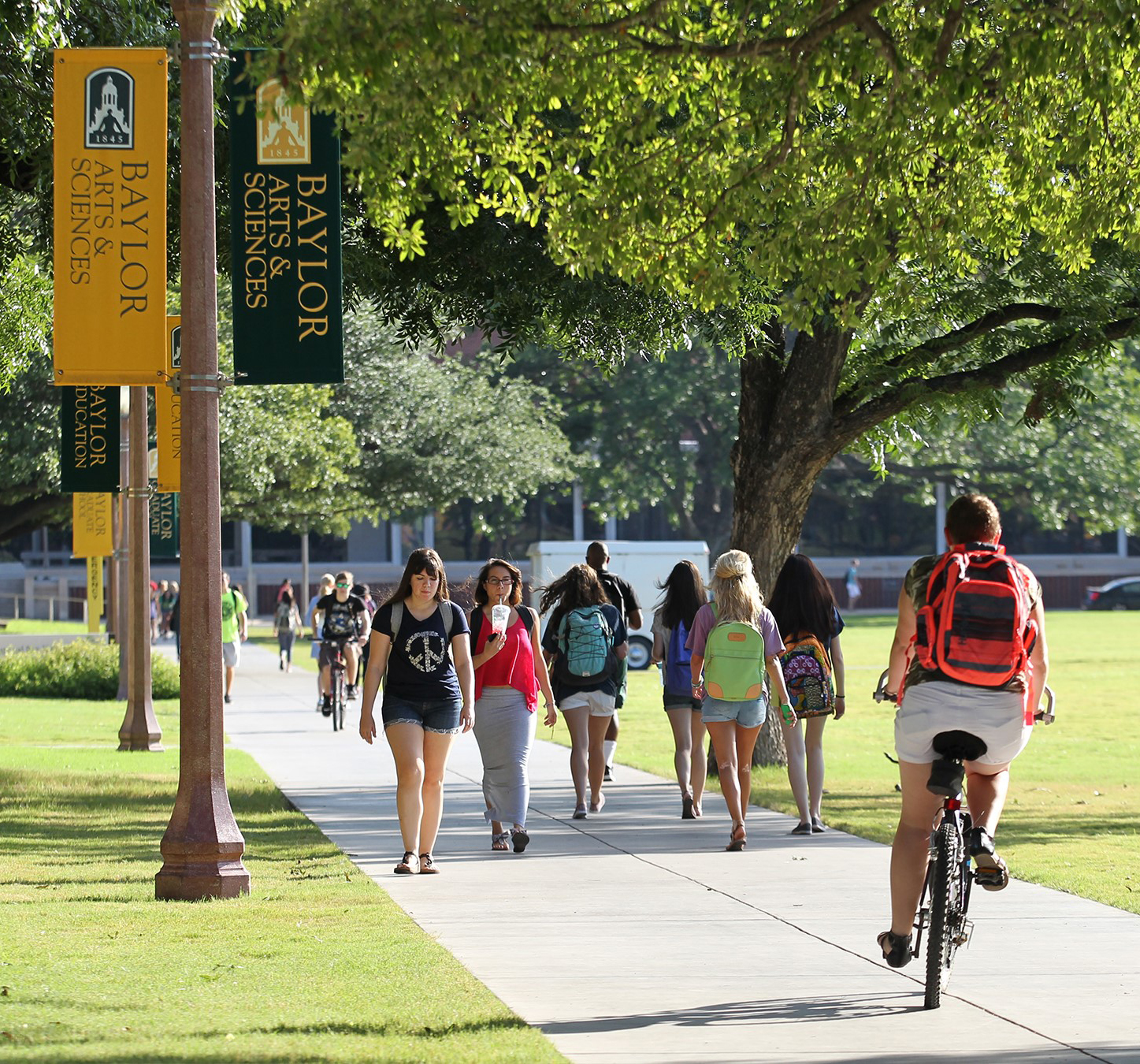
Baylor University, a private Christian institution located in Waco, TX, has been experiencing unprecedented campus-wide growth. This development included the addition of three 1,000-space parking facilities along the perimeter of campus, in addition to the removal of interior surface parking lots and on-street parking from interior streets and pathways.
Baylor's Department of Parking and Transportation Services, comprised of seven staff members, enforces nearly 11,000 spaces on campus for a population of approximately 20,000 faculty, staff, students and visitors.
Challenges
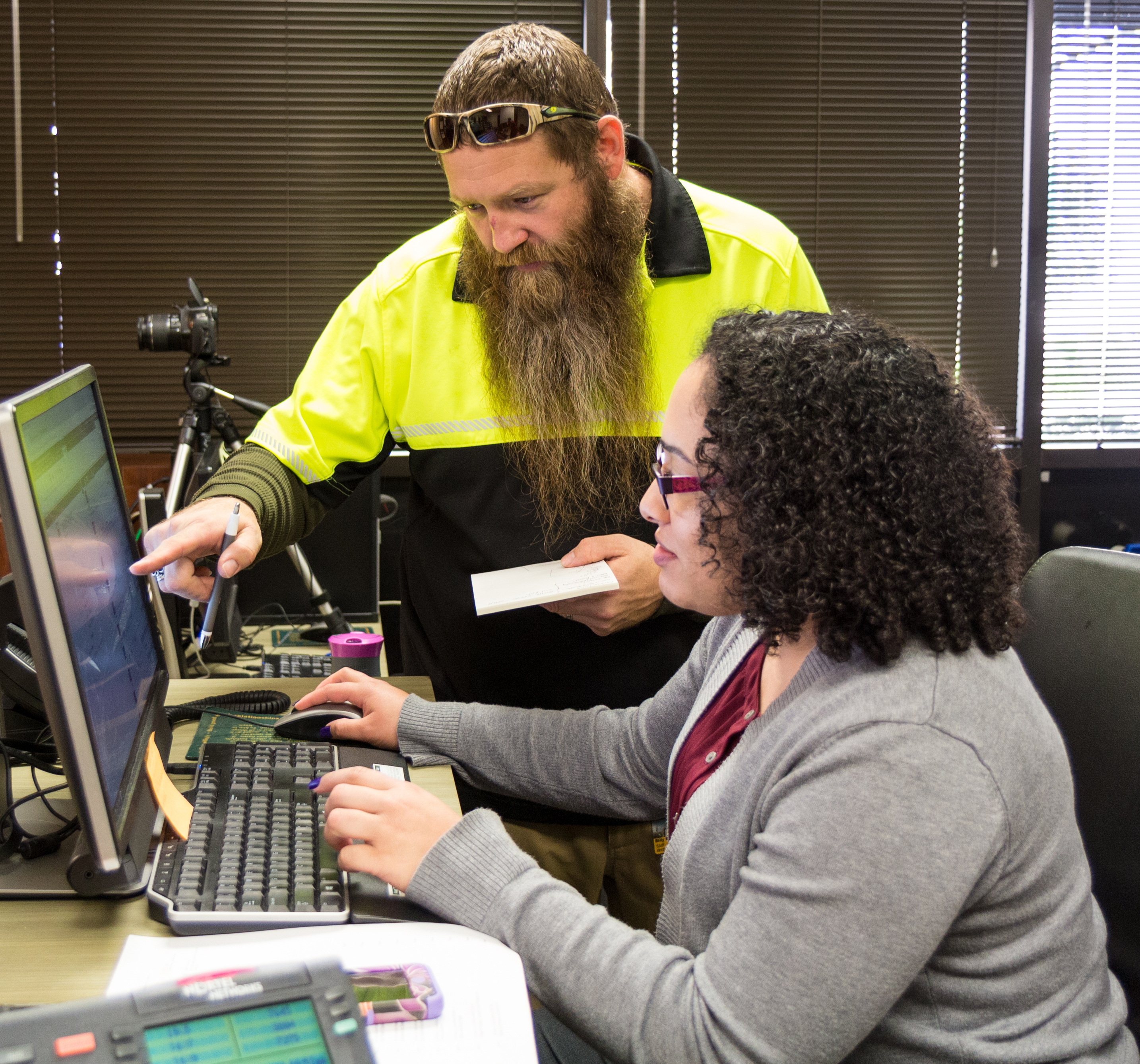
Low staff-to-space enforcement ratio
Baylor Parking and Transportation Services' staff of seven was essentially the same as when it had been created more than a decade before, despite the dramatic increase in spaces across campus. According to all peer metrics, the department was significantly understaffed.
Limited parking infrastructure
Devoid of counting equipment, gate controls, or metered parking areas, the parking management infrastructure lacked parking control technology, which led to ineffective enforcement coverage across campus.
Community expectation of free parking
The community's parking expectations reflect the historic small-town character which considers free parking to be the norm. In fact, abundant free parking options exist downtown, at hospitals, and even in the front row of the airport.
We needed a system with essentially the same man power, very limited budget could operate. As we started looking around, NuPark and LPR was the answer.Matt Penney
Director of Parking & Transportation Services
Solutions
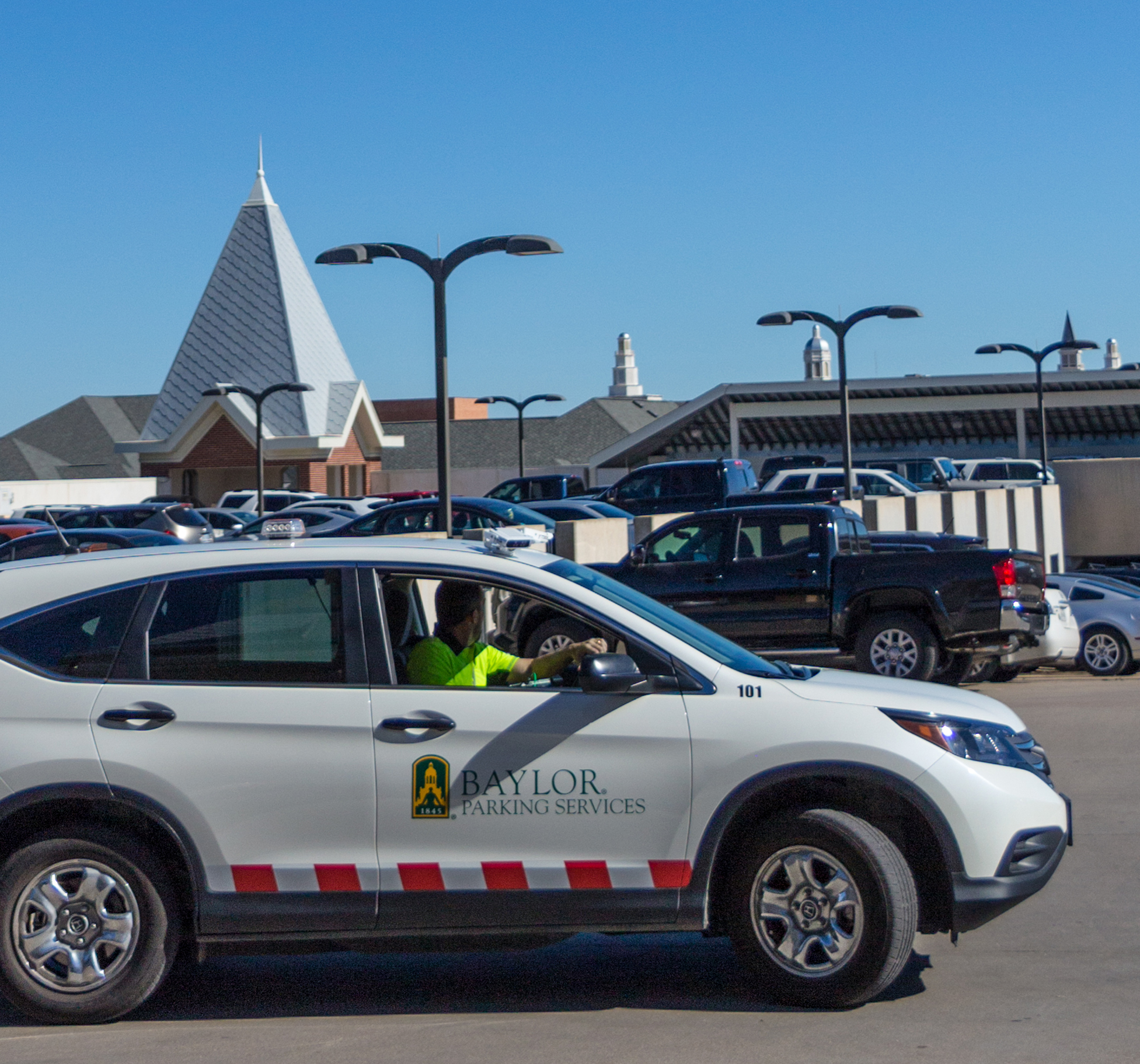
After reviewing several options, Baylor began to consider License Plate Recognition (LPR) technology. While numerous entities used LPR to locate specific scofflaw vehicles, few utilized the technology for permitting and issuing citations. Baylor Parking Services envisioned both short- and long-term potential in the technology for their campus.
Implement LPR system
In August 2015, Baylor deployed two, two-camera LPR-enabled vehicles with a cellular connection to the permit database. These vehicles could appropriately patrol 88% of campus parking spaces, with the remaining areas covered by a more traditional walking patrol. Efficiency skyrocketed as the LPR vehicles covered large areas in a fraction of the time required by a walking patrol.
Ensure consistent, efficient enforcement across campus
LPR enforcement had some less-than-positive reviews by some in the campus community, primarily due to an element of the student population unprepared for the new mobility of Parking and Transportation Services. Previous enforcement practices had set the expectation that parking without the appropriate permit might not be noticed. LPR facilitated consistent enforcement in all spaces at all times.
Switch from physical citations to e-citations
Since the LPR vehicle could drive through large areas without stopping, staff members could scan plates then pull over to a safer, low-traffic area to review any potential violations. With a couple of verifications, the staff member could issue an e-citation directly from the enforcement vehicle. Additionally, the e-citations provide images, a GPS location, and web links to the appeal process. These emailed notifications meshed perfectly with Baylor's tech-savvy culture.
Provide hassle-free visitor parking
In the past, visitors were required to obtain a physical parking permit to attend any campus event. The off-campus parking offices required a special trip just to pick up the free permit, a time-intensive process for both visitors and staff that generated no revenue. Implementing LPR led to an innovative approach for visitors who parked on campus. Although any unregistered vehicle parked on campus would actually be issued a parking citation, the system would hold each e-citation in a suspended state for a 30-day period. After 30 days, provided the vehicle has not been seen on campus again, the software would automatically void the citation. Consequently, visitors who parked on campus only one time within a 30-day period did not have to take any special action to park on campus for free.
The system can tell us anything we need to know. With the time that we save now and the corrections we get, I love it.Billy Gillaspie
Parking Representative
Results
It amazes us when we look at the reports of how many runs [the enforcement staff] made during the day with just one car. They're happier when they come in to see me, it's easier in here for us, we're very efficient, the morale is a lot better. That's important to me.Kay Cook
Field Supervisor
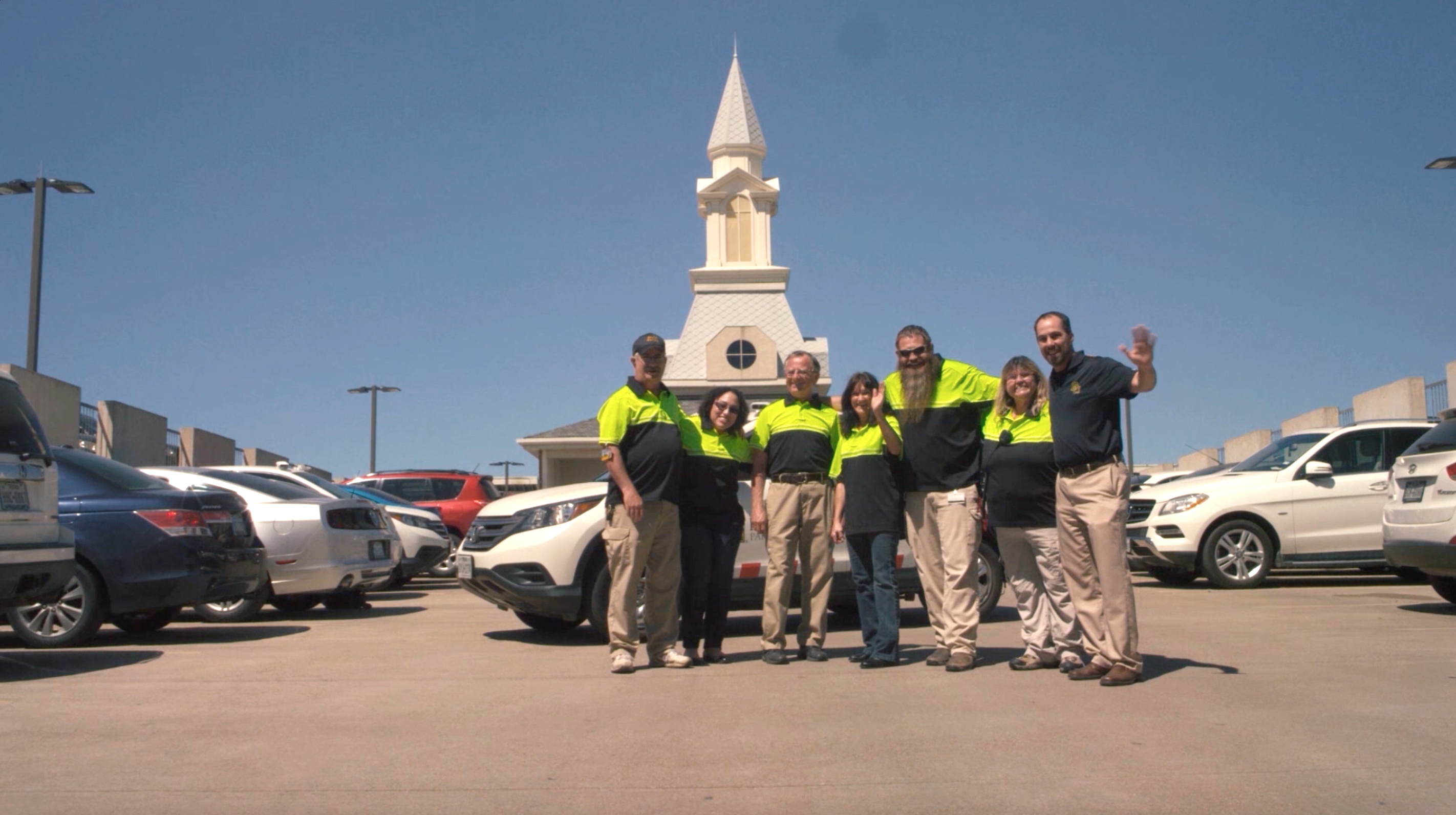
NuPark was a game-changer for us. It QUADRUPLED our man power. One person, who couldn't walk through the garage in an hour earlier, could patrol a 1,000 space garage in 15 minutes and be more accurate than they ever were walking through the lot. It provided us a whole new playbook for what we could do with parking.Matt Penney
Director of Parking & Transportation Services
More on Baylor University
Want more on Baylor University's parking transformation? Check out their parkumentary video that celebrates the team and organization's successes.
